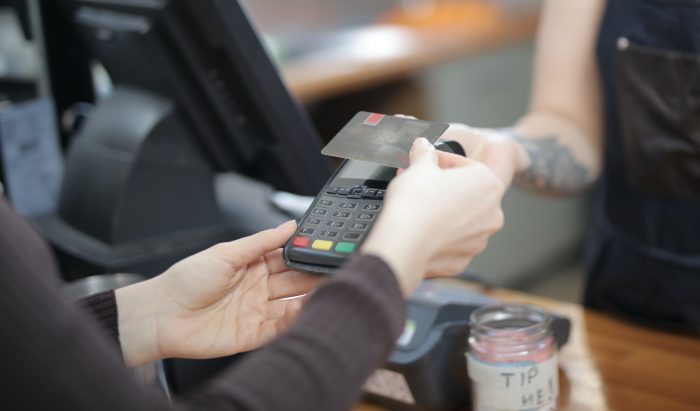Cash vs. Card: The 4 Ways Going Cashless Can Benefit Your Financial Health
April 8, 2020 6:05 pm
A cashless society might sound like something out of a utopian storybook, but in today’s world we are well on our way to this new kind of reality. During times of crisis, people can be seen flocking to grocery stores in search of toilet paper and cleaning products or visiting their financial institutions to withdraw extra cash. This might seem like a logical approach, but we can assure you that there is no better place to store your money than within your federally insured credit union, during times of crisis or not. Securing your money at your local credit union does not mean you lose access to it; you can access your funds with the swipe of a card and relieve the stress of carrying excessive amounts of cash. As with any change, this may seem daunting and you might be wondering how this will affect your financial health. Rest assured; we have outlined four of the reasons how moving to plastic can benefit your wallet.
1. Increased security
Scammers work tirelessly to find any opportunity to compromise your finances, meaning your banking security should be a top priority. Fortunately, banking cards offer additional consumer protection features that cash lacks. Most provide some degree of fraud protection, which keeps you from being liable for fraudulent charges that occur if you fall victim to a phishing scam. Cards also allow you to set up a variety of alerts triggered by unusual spending or notifying you of your account balance. These alerts will help you stay updated on your finances and allow you to act fast if fraudulent charges surface.
Consider this: cards can be replaced; stolen cash cannot. One of the safest places for you to store your cash is within your local credit union. Deposits at federally insured credit unions are protected by the National Credit Union Share Insurance Fund.
2. Protect your health
It shouldn’t surprise anyone that cash harbors germs, since it gets handled a lot… In fact, studies have suggested that bacteria and viruses can be found on our bills, which can aid in the spread of disease. Most modern forms of credit and debit cards have adapted to include contactless technology allowing you to simply tap your card instead of swiping or exchanging it with a cashier. This technology enables less interaction and slows the spread of germs.
3. Track your spending
Banking cards can be used as a tool to help you live within your budget and develop better financial discipline. If you’re paying with a card, you have the ability to check your account balance and transaction history by logging in online, calling your credit union, or using a mobile credit union app. This information provides you with a summary of your spending habits and can help you adjust your budget for the coming month. When using cash, there is no digital trail of your purchases, making it difficult to review and monitor your spending.
4. E-Commerce shopping
Debit or credit cards provide you with additional flexibility to easily pay online. Whether you’re browsing online to buy groceries, purchase a gift card, or buy a new pair of shoes—banking cards allow you to make that purchase from the comfort of your couch. Cash can be restricting and if you want to make an online purchase or reservation, you’ll be thankful you have a card on hand.
Expert Tip: To stay financially healthy, it’s important to make sure you can pay your credit card off at the end of each month. Be sure to stick to your budget and only spend what you can afford while shopping online.
Contact your local credit union today to learn more about the benefits behind debit and credit cards and to find out what card is most beneficial for your needs.



Comments are closed here.